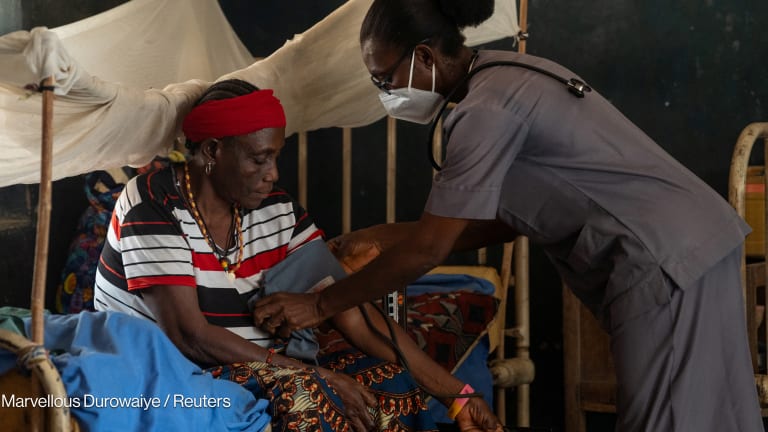
BERLIN — Global health aid has prevented almost 700 million deaths since 1990, a report released by the ONE Campaign on Monday claims.
The “Empowered Citizens, Empowered Systems” report, launched at the World Health Summit in Berlin, Germany, assesses global health progress to date and recommends next steps to reach the 2030 sustainable development agenda. It found that international financing and innovation has helped saved millions from preventable diseases — but adds that progress could be stalled or even reversed unless radical new commitments are made.
“The lives saved amount to twice the population of the United States,” Gayle Smith, chief executive officer of ONE, said in a statement. “We’ve shown that we can do this, and to slow down — or step back — at this critical juncture would be to leave progress on the table.”
“We’ve shown that we can do this, and to slow down – or step back – at this critical juncture would be to leave progress on the table.”
— Gayle Smith, CEO, ONE CampaignThe report estimates that missing the Sustainable Development Goals on HIV, tuberculosis, malaria, and maternal and child deaths alone could put over 650 million lives in sub-Saharan Africa at risk by 2030. But a flatlining of donor assistance for global health and a lack of domestic investments means there is currently no “modern, costed, and implementable plan for delivering health,” ONE states.
“Our aim should be not simply to celebrate what we’ve achieved, but to get the job done,” Smith said.
According to the United Nations Development Programme, achieving SDG 3 on good health and well-being for all will require an additional $371 billion per year by 2030.
To remedy this, the advocacy organization suggests donors, governments, and philanthropic organizations “mobilize more money for health and deliver more health for the money.” Its key recommendations include low-income countries increasing their health spending to $112 per person; new country donors such as China stepping up to invest; reassessment of the Abuja Declaration, a 2001 commitment on health financing for the African Union countries and donors; and testing of new financing models.
To ensure the most is made of the money, the report advises countries to invest in their health care workforce; focus investments on primary health care; empower citizens to be involved in health programs; and experiment with new social accountability tools.
It also makes an economic case for investing in health, highlighting that in less than 50 years there will be more young people in Africa than in all G-20 countries combined. Protecting their health could lead to a huge economic boost for Africa, and the global economy as a whole, it says.
The World Health Organization is expected to present a first draft of its own roadmap to achieving SDG 3 at the World Health Summit.








